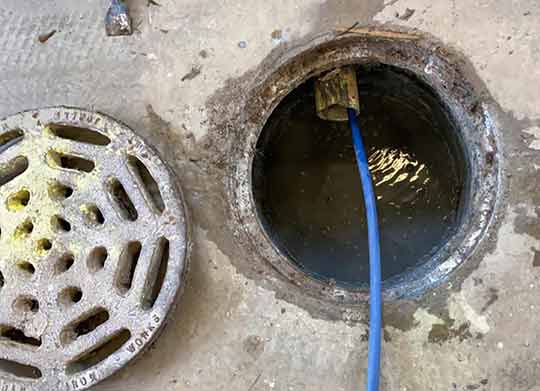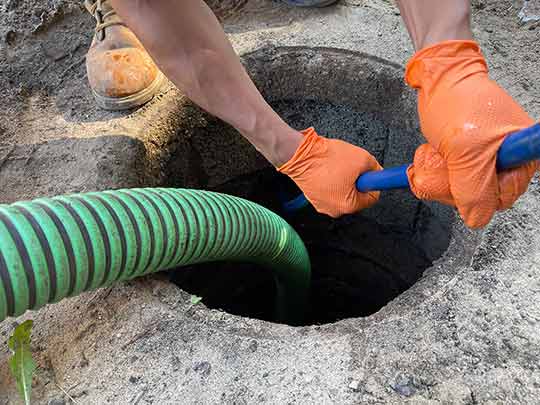Understanding the Importance of Clean Sewage Lines in Commercial Buildings
Commercial buildings are crucial in supporting various industries, accommodating businesses, and providing essential services to communities. As such, they require proper maintenance to ensure smooth operations and a sanitary environment. Among the critical aspects of maintenance is the cleanliness of sewage lines. Neglecting the cleanliness of these lines can lead to significant issues, ranging from unpleasant odors to health hazards and costly repairs.
By familiarizing ourselves with the warning signs that indicate the need to clean sewer lines in commercial buildings, we can take proactive measures to prevent potential problems. Here we will explore these warning signs and their significance, as well as the importance of regular maintenance for commercial building owners and administrators.
The Importance of Clean Sewage Lines in Commercial Buildings
1. Ensuring Proper Sanitation:
One of the primary reasons to clean sewage lines in commercial buildings is to maintain proper sanitation. Sewage lines transport wastewater, including human waste and other contaminants, away from the building. Over time, debris, grease, mineral deposits, and other substances accumulate in these lines, obstructing the flow and creating unhygienic conditions. Regular cleaning helps remove these obstructions and ensure the proper functioning of the sewage system, preventing potential contamination and health risks.
2. Preventing Unpleasant Odors:
A fouls smell emanating from restrooms or other areas of a commercial building can be a clear indication of clogged or dirty sewage lines. The accumulation of waste materials and other debris in the lines can generate unpleasant odors that permeate the building. Regular cleaning and maintenance help eliminate these odors, creating a more pleasant environment for employees, customers, and visitors.
3. Avoiding Costly Repairs:
Failure to clean sewage lines in a timely manner can lead to more significant problems, such as pipe blockages and sewage backups. These issues can cause water damage to the building’s structure, electrical systems, and other components, resulting in costly repairs. By investing in regular cleaning and maintenance, commercial building owners can save substantial amounts of money by preventing severe damages and the need for extensive repairs.

If a persistent foul odor is present in a commercial building, particularly around restrooms or drainage areas, it is likely a sign that the sewage lines require cleaning.
Warning Signs: When to Clean Sewage Lines in Commercial Buildings
1. Slow-Draining Fixtures:
If sinks, toilets, and other fixtures in a commercial building are draining slowly, it may be a sign of blockages in the sewage lines. Over time, debris and accumulated materials can hinder the flow of wastewater, causing fixtures to drain at a slower pace. It is important not to overlook this warning sign, as it can indicate the need for immediate cleaning to prevent more severe issues.
2. Unusual Gurgling Noises:
Strange gurgling noises coming from drains, especially when flushing toilets or using sinks, can indicate air pockets or blockages in the sewage lines. These noises occur when wastewater struggles to flow freely due to obstructions. Regular cleaning can help remove these obstructions, restoring the proper functioning of the sewage system and eliminating the unusual noises.
3. Foul Odors:
If a persistent foul odor is present in a commercial building, particularly around restrooms or drainage areas, it is likely a sign that the sewage lines require cleaning. The accumulation of waste materials, grease, and other substances creates a breeding ground for bacteria and emits unpleasant odors. Thorough cleaning of the sewage lines can help eliminate these odors and maintain a more pleasant environment.
4. Fluctuating Toilet Water Levels:
Observing inconsistent water levels in toilets within a commercial building can also indicate a need for sewer line cleaning. Blockages or clogs in the sewage lines can cause the water levels in toilets to fluctuate, resulting in toilet bowl overflow or incomplete flushing. To prevent toilets from becoming unusable and causing further issues, immediate cleaning is necessary.
5. Recurring Drain Clogs:
If a commercial building experiences frequent drain clogs, despite attempts to resolve them, it suggests an underlying issue with the sewage lines. Persistent clogs often indicate the presence of obstructions that accumulate over time and require professional cleaning to fully remove.

By adhering to a regular cleaning schedule, owners can ensure the longevity and uninterrupted functionality of the sewage system.
Maintaining Clean Sewage Lines: A Proactive Approach
1. Regular Inspections:
To identify potential issues before they escalate, it is essential to conduct regular inspections of the sewage lines in commercial buildings. Professional plumbing services can perform thorough camera inspections of the sewer line using specialized equipment to detect any blockages, cracks, or other abnormalities. Regular inspections help catch and address problems early on, preventing extensive damage and costly repairs.
2. Scheduled Cleaning and Maintenance:
Establishing a scheduled cleaning and maintenance routine for sewage lines is crucial for commercial building owners. Professional plumbers can utilize various methods such as high-powered hydro jetting, snaking, or using specialized cleaning agents to remove built-up debris, grease, and other obstructions from the lines. By adhering to a regular cleaning schedule, owners can ensure the longevity and uninterrupted functionality of the sewage system.
3. Employee Education:
Creating awareness among employees is an integral part of maintaining clean sewage lines in commercial buildings. Educate employees about proper waste disposal practices, encouraging them to avoid flushing non-biodegradable items and pouring greasy substances down the drains. By developing good habits among employees, the risk of blockages and sewage line issues can be significantly reduced.
To Conclude
Clean sewage lines are vital to the smooth operation and overall sanitation of commercial buildings. Neglecting the cleanliness of these lines can lead to persistent issues such as foul odors, slow-draining fixtures, and recurring clogs. By recognizing the warning signs and implementing proactive measures like regular inspections, scheduled cleaning, and employee education, commercial building owners can avoid costly repairs, maintain a hygienic environment, and ensure the uninterrupted functionality of their sewage systems.
